
John Wooden vs LeBron James
Be true to yourself; help others; make each day your masterpiece; drink deeply from good books; make friendship a fine art; build a shelter against a rainy day; pray for guidance and be thankful.
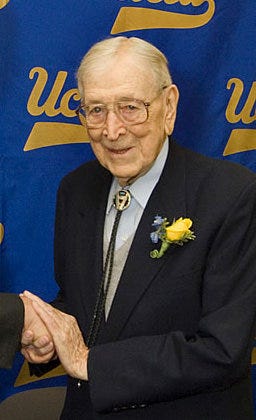
One-time or recurring donations can now be made at Ko-Fi
My Inspirational Essay for October.
Today I saw a Tweet by LeBron James and I immediately thought of John Wooden. I will get into LeBron’s Tweet in a minute, but first let me remind everyone who John Wooden is.
John Robert Wooden (1910 – 2010), was an American basketball coach and player. Nicknamed the Wizard of Westwood, (a name he didn’t like) he won ten National Collegiate Athletic Association (NCAA) championships in a 12-year period as head coach for the UCLA Bruins, including a record seven in a row. No other team has won more than four. Within this period, his teams won an NCAA men's basketball record 88 consecutive games. Among countless prestigious awards, Wooden won the Henry Iba Award as national coach of the year a record seven times and won the AP award five times.
Here’s some of the men who played on Wooden’s ‘Dream Team’: Kareem Abdul-Jabbar, Bill Walton, Walt Hazzard, Sideny Wicks, Henry Bibby, Gail Goodrich, Keith Wilks.
"He never made more than $35,000 a year salary, including 1975, the year he won his 10th national championship, and never asked for a raise", wrote Rick Reilly of ESPN. According to his own writings, Wooden turned down an offer to coach the Los Angeles Lakers that may have been ten times what UCLA was paying him.
I had the privilege of meeting Coach Wooden shortly before his death in June 2010. I was helping Henry Bibby to write his life story. The press hadn’t been kind to Bibby about his relationship with his ex-wife and his son, basketball player Mike Bibby, and he had wanted to set the record straight. Bibby hoped his musings would become a book, but as far as I know, that never happened. Sitting with him and hearing all his stories was fascinating, and I got paid for what I did. But the best part—the part that was priceless and that has stayed with me ever since as one of the most meaningful encounters of my life—was the chance it gave me to sit down and talk with Coach Wooden in his home.
You would expect the most successful coach of all time to live in a mansion, but he didn’t. He lived in a small, unassuming condo in Encino, just off of Ventura Blvd. It was filled with memorabilia that must have been worth a small fortune, but there wasn’t any security to speak of. The balcony was right next to a side street and over the course of the couple of hours I spent with him, numerous Fed Ex and UPS trucks went by, with packages being tossed over the rail and onto the balcony accompanied by cheery “hellos!” from the drivers as they had no doubt been doing for years.
Listening to Coach Wooden talk was like listening to my dad. They were made of the same solid character. They lived by the same higher purpose. And neither one had compromised their integrity for fame or fortune, despite having many opportunities to do so.
John Wooden's life, everything that he sought to achieve, was built upon what he called the Seven Point Creed, written by his father on a piece of paper and given to him upon his graduation from elementary school. While I sat with him, he told me how he had kept that creed in his wallet all those years, admonishing him to “be true to yourself; help others; make each day your masterpiece; drink deeply from good books, especially the Bible; make friendship a fine art; build a shelter against a rainy day; pray for guidance and give thanks for your blessings every day.
His son, Jim Wooden, has said that his father never really talked about winning or losing. In fact, he was most proud of the team that didn’t win, based on the fact that they did the best that they could.
This is an unheard-of concept today. When I try to tell people that the battle, we currently face is long and probably won’t be won in our lifetime or might not even be won at all in the way we think of winning, many get offended. That’s weakness, I’m told. We must win! But real winning isn’t something we can ever achieve in this fallen world. Those who realize this are the strongest, not the weakest. They will never be discouraged by human concepts of winning and losing. A spiritual warrior keeps going, no matter the physical setbacks. To do what is right, no matter the consequences, is what real winning is about.
Wooden wanted to help everyone who crossed his path to be a better person, not just a better basketball player. He believed if he could do that, then everything else would fall into place. He demonstrated this year after year at UCLA.
John Wooden coached during troubling times in America, when race riots tore across the land. As Abdul Kareem Jabbar remembers, Coach Wooden didn’t really know a lot about racism but he willingly learned from his players of color the reality that they faced.
Henry Bibby confirmed this in my conversations with him. He described how Wooden flew all the way to his home in Franklinton, North Carolina to meet his parents, wanting to make sure he got their blessing to bring their son to UCLA. Bibby’s trip to Los Angeles would be the first of many such plane rides. The world opened up for him. Coach Wooden chose his players based on their talents and considered it his duty to help mold good character within them. The color of their skin was irrelevant.
Now, of course, we are told it is all about skin color. Those who fought so hard and suffered so much to end discrimination would be appalled at how we are purposely being sent back into those darker days.
When I looked today at LeBron James’ Tweet and people’s responses, I thought of John Wooden, the coach who lived by a creed that LeBron would no doubt despise. I cannot think of two more opposite people. Not because one is black, and one is white. But because of the quality of their character.
LeBron represents the height of an NBA player’s success today. Kids dream of being him. This successful role model Tweeted at Elon Musk, referring to a claim of a resurgence of the “n” word:
I dont know Elon Musk and, tbh, I could care less who owns twitter. But I will say that if this is true, I hope he and his people take this very seriously because this is scary AF. So many damn unfit people saying hate speech is free speech.
a guy called @AurelianofRome eruditely responded:
No one is at risk. Every call for regulation erroneously conflates liberty of speech with the inevitability of violence in order to silence people who disagree with you. That’s why all warnings of “violence” or “danger” are only attached to what conservatives have to say.
And:
It’s this asymmetry that reveals a deep personal bias on your part to control all speech for *political* reasons. No one is “unfit” to speak. No one is “fit” to determine who is “unfit” to speak. Anyone who cannot understand this is incapable of being liberal.
After which, someone reminded us that it’s been okay for LeBron to do this:
And this:
LeBron James never got banned for inciting hatred. In fact, millions of mostly white people eagerly bowed at his feet. They did not find it incongruous that upon his feet he wore shoes worth thousands of dollars that young people in poor neighborhoods fought and stole over, so that they could be just like him. (If you want to see a selection of Lebron’s shoes and their prices, go here.)
It didn’t matter that those shoes were no doubt made by slaves,
as @TimRunsHisMouth observed:
LeBron is totally ok with China using slave labor to make his shoes, but words hurt his feelings.
I do agree with LeBron that the hatred is out of control. If only LeBron realized how much he and others like him have done to contribute to that hatred.
Humans don’t seem to learn very well from past disasters. When one group of tyrants falls out of favor, the new group turns around and does the exact same thing, gleefully tormenting their tormentors, oftentimes horrifically. We see this pattern repeated over and over down through history.
Why can’t character, integrity, and honor prevail?
Wooden met his future wife, Nellie "Nell" Riley, when he was a freshman in high school. They were both 21 years of age when they married and remained devoted to one another until Nellie’s death on March 21, 1985, from cancer at age 73.
Wooden continued that devotion to his wife until his own death 25 years after her passing. He kept to a “monthly ritual—health permitting—on the 21st of every month, when he would visit her crypt in the mausoleum, then write a love letter to her. After completing each letter, he placed it in an envelope and added it to a stack of similar letters that accumulated over the years on the pillow she slept on during their life together.”
John Wooden’s marriage, his family and his faith were more important than success in basketball. He said,
"I have always tried to make it clear that basketball is not the ultimate. It is of small importance in comparison to the total life we live. There is only one kind of life that truly wins, and that is the one that places faith in the hands of the Savior.”
Just like my father, Wooden read the Bible daily. His hope was that his faith was apparent to others: "If I were ever prosecuted for my religion, I truly hope there would be enough evidence to convict me."
Where do we hear such words from our leaders, pundits and celebrities today? We don’t. Instead of Wooden admonishing, "Perform at your best when your best is required. Your best is required each day,” it’s a free-for-all of jokes about the attack on Nancy Pelosi’s husband.
Pundits on the right, such as @DineshDSouza say things like this:
Assailant in his underpants 2. Paul Pelosi knows his name and tells police he’s a “friend.” 3. Assailant asks “where’s Nancy?” to make sure she’s not home. 4. Pelosi takes bathroom break from spat and makes 911 call Conclusion: This guy was a sex partner or male prostitute!
While pundits on the left such as @joncoopertweets say things like this:
BREAKING: The guy who attacked Paul Pelosi with a hammer made racist posts online, defended Trump, questioned the results of the 2020 election, and pushed other conspiracy theories. MAGA isn't a political organization. It's a domestic terrorist organization. END OF STORY.
What would John Wooden say if he were alive today? None of it. He would say none of it. Meanwhile, I ask myself, while we obsess about these latest sordid tales on the internet, what more important issues are we being distracted from knowing? Truly, we are easily swayed this way and that by every wind that comes along.
Those who understand freedom also value compassion. They will never sling mud, just as they accuse their opponents of doing.
Have a little grace. Show a little compassion. If you are a Christian, then live by Jesus’s standard. Yes, enjoy your freedom. Make some jokes, but don’t be cruel just because now you can and you’re going to “show them how it feels.”
Kareem Abdul-Jabbar tells a story about Coach Wooden that he only found out years later. In 1948, when Wooden was coaching at Indiana State University his team did very well and they were invited to the NAIA Tournament. But Wooden was told he would have to leave his one black player behind. Without a second thought, Wooden turned down the invitation. The next year, his team did even better, and he got the phone call again. He said the same thing, and this time, they didn’t make any demands, but let him bring the entire team.
Jabbar said if Coach Wooden had told him that story during their first meeting, when Jabbar arrived to join the team, he would have been very impressed. But that’s not what coach talked about. Wooden spent the first half hour talking about academics and how he expected all of his players to excel, or they could not play. It was only years later that Jabbar found out that story and he understood fully why Wooden had never told it to him. Wooden’s choice to stand up for what he believed, despite it seeming as if he was turning down a huge opportunity for success, wasn’t something Wooden thought of as special or worthy of any extra praise. It was simply what everyone should do if they believed in doing the right thing.
Jabbar said, “He had that type of character. He didn’t promote himself. He allowed his relationships with people to blossom over time.”
For Jabbar that relationship extended over more than 50 years and he was proud to call Coach Wooden his friend.
Jabbar said:
“I’m glad I got to play for this man. He was about excellence. Excellence of character, the excellence of the team. The excellence that you achieve when you get an education The excellence that you get when you understand what a moral statement is with our life. That’s what Coach Wooden was about. That’s what made him so special and so different.”
Would LeBron James ever talk like that? Not about a white person. Probably not about anybody.
Sitting with Coach Wooden that day, he told me what he thought about current sports. “It’s all about money and advertising. I was offered so much, if I would just endorse a product, but I never would. I turned down multimillion dollar contracts, homes, cars. Once, they offered me a huge house by the ocean in an exclusive area, if I would endorse a product.” He looked around himself at the small room, stuffed with memories. “Why would I need all of that? I’m happy here. I don’t fear death. I welcome it. I’ve lived the best possible life. I’m ready to go home to heaven and my Nellie.”
I thought of my dad who had been offered multiple honorary degrees from universities and he always turned them down. “I can’t take those,” he said. “I didn’t earn them.” Agents offered to represent him, promising they could make him a lot more money. He wasn’t interested. He spoke out against the prosperity preachers of those times, like Kenneth Copland, Robert Schuler, Benny Hinn. These powerful preachers did not like my dad. He exposed their greed and hypocrisy.
For people like John Wooden and my dad, it was the life they lived that really mattered, not the awards, the big houses or the cars. It was knowing that they set an example for others to learn from and live by.
Look at Abdul Kareem Jabbar and how eloquently he spoke of his mentor. Then look at LeBron James and see the kind of example he sets as a mentor to youth today. His message is to crush anyone who stands in your way. Success means wearing shoes worth thousands of dollars made by slaves. It means being a slave yourself, owned by the companies that pay you millions of dollars to promote their products. It means bowing to China and trashing your own country.
Having character, integrity, morals, shouldn’t be something special and different. It should be the norm.
Thank you for reading and listening. Please subscribe, share and comment. God Bless!




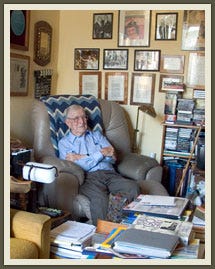
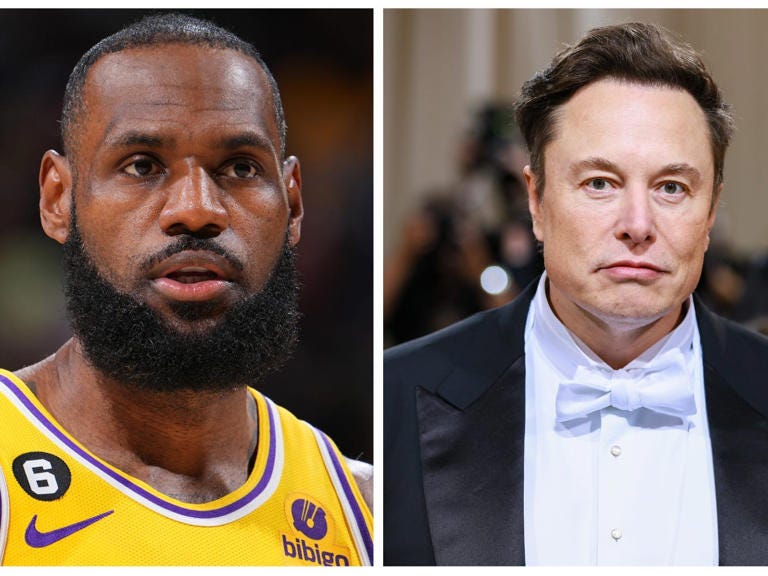
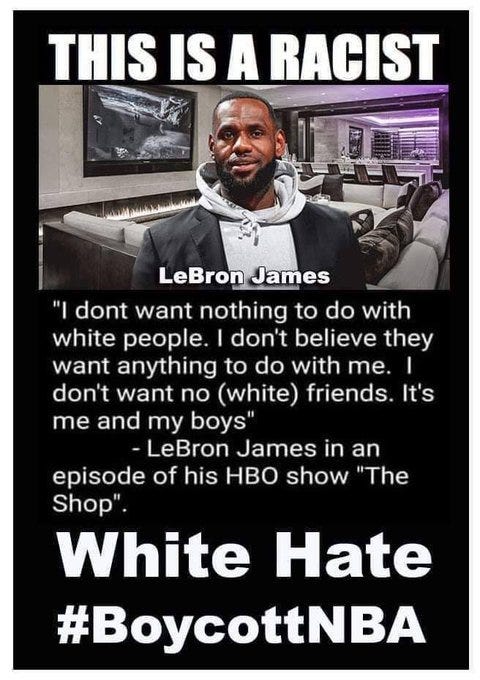
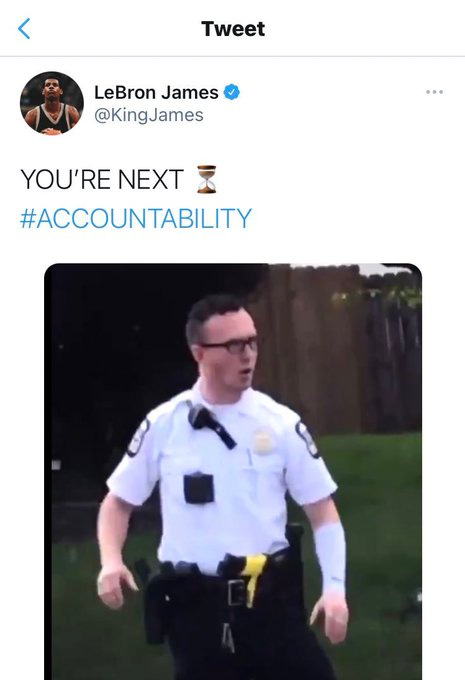

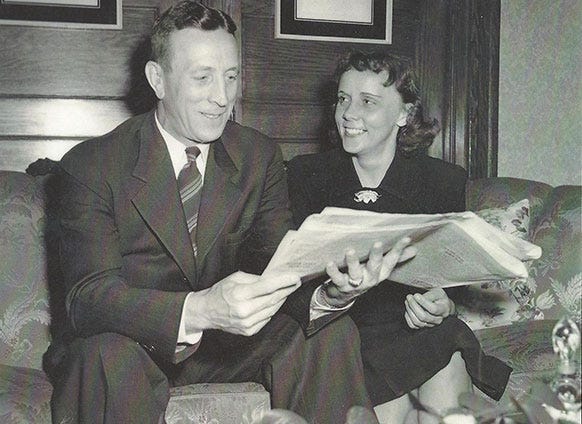
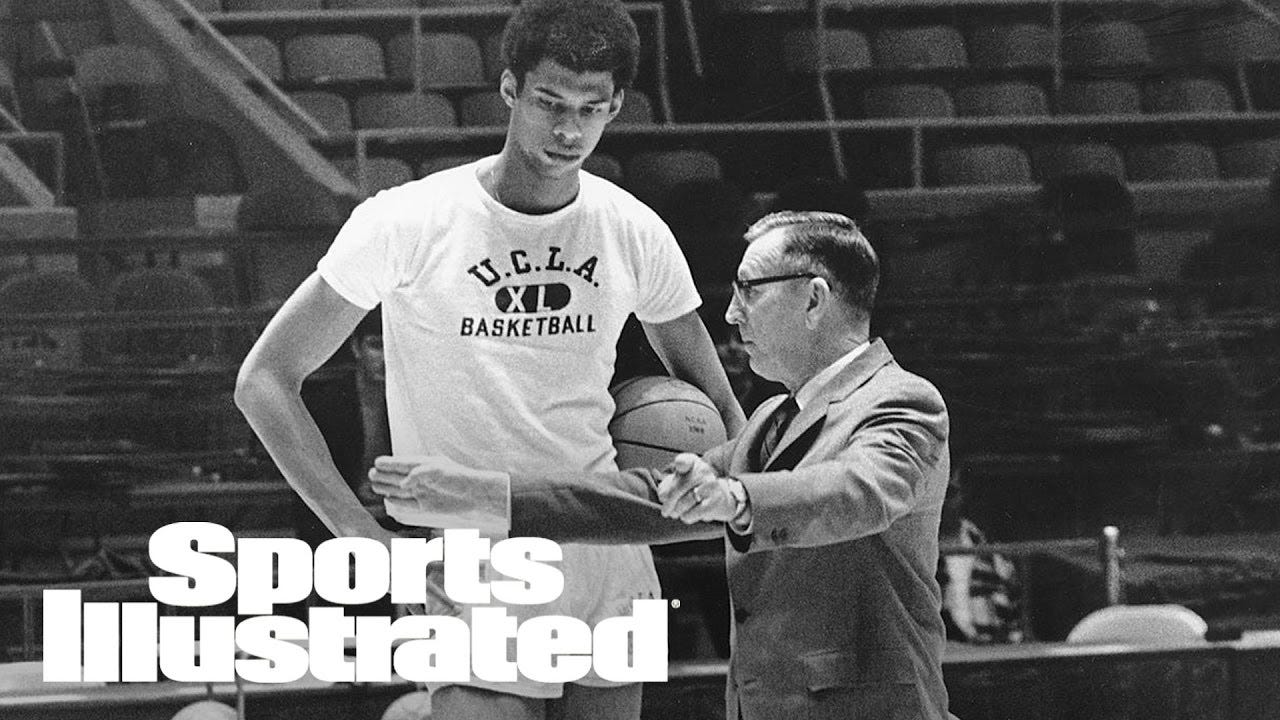
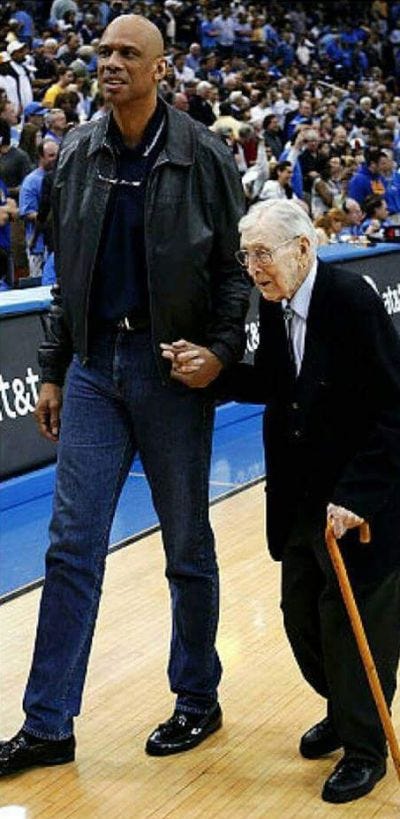
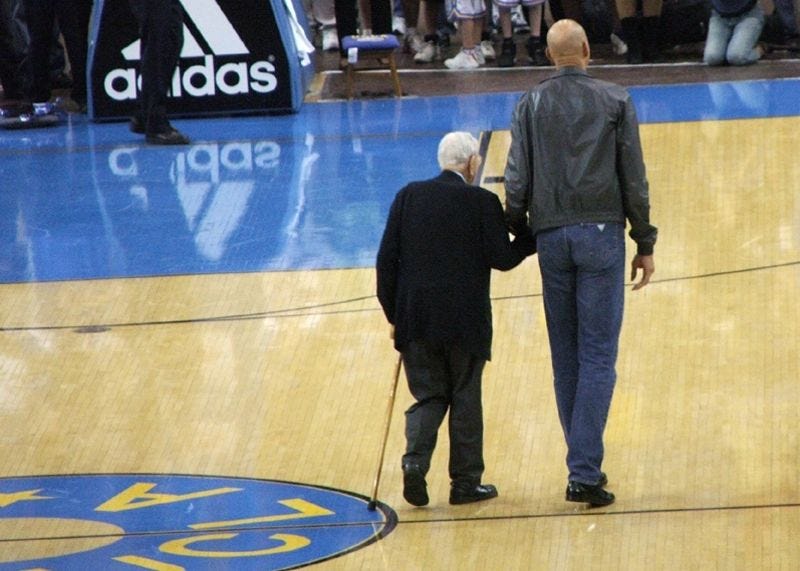
It's so sad to say, but there are few heroes for our children to emulate. Oh, they're out there, but the powers that be make sure their light is hidden. Now it's bling and $700 pairs of shoes that our young men and boys gravitate toward. And the girls either embrace slutdom or decide they no longer want to be a girl. Our culture has taken a nose dive into shallowness and depravity, with so few avenues to lift us up. Virtues such as chastity, integrity, and honestly are reviled in the public square. A moral compass is becoming as rare as chicken teeth.
Thanks for another fine essay.
Thanks for the reminders of what once was in our lives. How far we fallen.
I do so look forward to your inspirational essays!